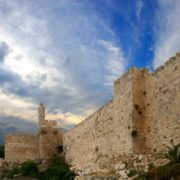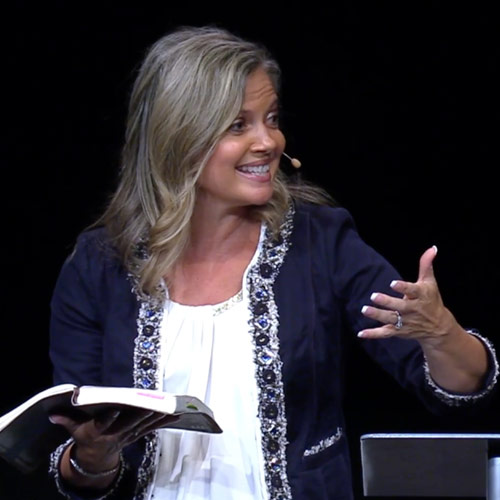Seated in the Temple
He alone is my rock and my salvation, my fortress; I shall not be greatly shaken. Psalm 62:2
God has a way of shaking things up so that only He and His Word remain. And when the dust settles, many who thought they’d be standing will find themselves scattered among the rubble.
A great shaking looms on the horizon, dear one. In fact it has already begun.
“Yet once more I will shake not only the earth but also the heavens.” This phrase, “Yet once more,” indicates the removal of things that are shaken—that is, things that have been made—in order that the things that cannot be shaken may remain.” Hebrews 12:26-27
God is about to reveal the danger of trusting in created things.
This isn’t the first time He’s done this. When Jesus walked the earth He spoke some words that sent the religious folk reeling. In fact, they used those words to accuse Him at His trial.
“This man said, ‘I am able to destroy the temple of God, and to rebuild it in three days.’” Matthew 26:61
Mark 14:58 offers another detail.
“We heard him say, ‘I will destroy this temple that is made with hands, and in three days I will build another, not made with hands.’”
Sounds like a shaking to me. God was about to destroy the temple they revered. A temple built with sweat and tears. A temple made with hands.
But why would God destroy His own dwelling place? In order that the things that cannot be shaken may remain.
The people needed to understand that God’s power didn’t rest in a building. It rests with Him.
The Jews then said, “It has taken forty-six years to build this temple, and will you raise it up in three days?” But he was speaking about the temple of his body. When therefore he was raised from the dead, his disciples remembered that he had said this, and they believed the Scripture and the word that Jesus had spoken. John 2:20-22
When Jesus conquered death through the cross, He changed the location of God’s earthly temple. God would no longer dwell in a building. Instead He would dwell within man.
Paul makes that pretty clear in 1 Corinthians 3:16-17.
Do you not know that you are God’s temple and that God’s Spirit dwells in you? If anyone destroys God’s temple, God will destroy him. For God’s temple is holy, and you are that temple.
He confirms it again in 1 Corinthians 6:19-20.
Or do you not know that your body is a temple of the Holy Spirit within you, whom you have from God? You are not your own, for you were bought with a price. So glorify God in your body.
Beloved, you and I are the new temple of God. Faith in Jesus Christ made us one with Him. We are His body. His Spirit dwells within us, sealing us as His own. And we are to honor Him, consecrating His temple for holy use.
But scripture offers a chilling warning when we realize that “we are the temple of the living God” (2 Corinthians 6:16). 2 Thessalonians 2:3-4 speaks of the things that will take place before the coming Day of the Lord.
Let no one deceive you in any way. For that day will not come, unless the rebellion comes first, and the man of lawlessness is revealed, the son of destruction, who opposes and exalts himself against every so-called god or object of worship, so that he takes his seat in the temple of God, proclaiming himself to be God.
We live in days of rebellion, dear one. Even the church rebels against God’s Word. And the lawless serpent, who exalts himself and opposes Truth, has already seated himself in God’s temple. He rules the throne of our hearts, governing our actions through unquenched desires of our flesh—flesh that Jesus died and rose to conquer.
We can’t allow him to remain in God’s sanctuary, beloved. Our enemy must be cast out of the temple. (Matthew 21:12)
Your holy people held possession for a little while; our adversaries have trampled down your sanctuary. We have become like those over whom you have never ruled, like those who are not called by your name. Isaiah 63:18-19
Forgive us, Father, for giving the enemy ground he does not deserve—Your ground. Ground you purchased with Your Son’s blood. Ground you freely offer us in a gift of lavish grace. Ground we claim simply by drawing near to You and believing Your Word.
We must return to the Lord our God and remove every unholy influence from the temple. If we don’t, we will fall to Satan’s deceptions when the man of lawlessness rises in power,
…with all power and false signs and wonders, and with all wicked deception for those who are perishing, because they refused to love the truth and so be saved. 2 Thessalonians 2:9-10
Only loving the truth will save us, dear one. Loving our Savior and loving His Word.
Don’t let your love for either grow cold or you will find yourself shaken. Return to your God of love while the invitation still stands.












